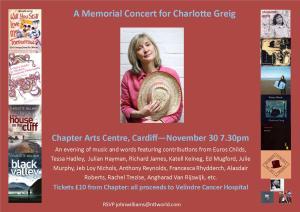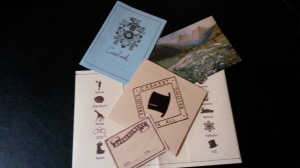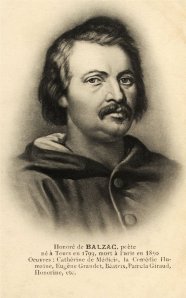Category Archives: Uncategorized
Charlotte Greig 10/8/1954 – 19/6/2014

It is with great sadness that Charlotte’s family have to announce that she died on June 19th, nine months after being diagnosed with breast cancer. You can listen to her music here or buy it from this website. Her books – as Charlotte Greig and, more recently, as Charlotte Williams – are available from Amazon. A final novel, Black Valley, will be published in August. There will be a memorial service in the next few months to which all will be welcome. Details will be published here.
Sleep on beloved
Dr Freud’s Cabaret
Here’s the album, at last. As you can see it’s a deluxe package featuring a casebook with lyrics, photos, etc, an appointment card and a postcard taken from my grandfather’s collection, as well as the album itself. For More information visit the dedicated webpage HERE. or if you’d just like to hear and/or buy it then you can visit the bandcamp page HERE
Laugharne Weekend Festival
Postcards from the past
I’ve been sorting through two suitcases of postcards retrieved from my parents’ attic when they moved house. One is an amazing collection my maternal grandfather made. They are mostly small-size, colour-tinted views from around the world, as well as sepia prints of paintings, sculpture, and architecture. Most of the cards are blank ones that he collected for himself (he was a scholar who wrote a book on Balzac). Some he received from members of the family, including me. I found a card I sent him when I was ten with a picture of my boarding school on the front, marking the window of my dormitory, and thanking him for some animal magazines he sent me. I think he must have known how homesick I was. He was always very sweet to me. His name was Harold Owen Stutchbury, and he was a proper Edwardian gent.
 The other suitcase is from the other side of the family, including some unusual pcs from Sri Lanka, then Ceylon, where my other grandfather was a tea planter. One of them is from my father to his mother when he was a very small child, writing ‘Daddy has three deer skins’. As you do. Another is of a colonial hotel, with the words ‘No eggs available this week’ written on the back. A strange, vanished world. What’s striking, and sometimes rather sad, is how far apart we all were, scattered all over the globe: young children writing to their parents and relatives from places that weren’t home. But it’s also a slower, calmer world, where arrangement to meet took weeks, not seconds, as now. Even the postcards themselves look as if they took time and effort to make.
The other suitcase is from the other side of the family, including some unusual pcs from Sri Lanka, then Ceylon, where my other grandfather was a tea planter. One of them is from my father to his mother when he was a very small child, writing ‘Daddy has three deer skins’. As you do. Another is of a colonial hotel, with the words ‘No eggs available this week’ written on the back. A strange, vanished world. What’s striking, and sometimes rather sad, is how far apart we all were, scattered all over the globe: young children writing to their parents and relatives from places that weren’t home. But it’s also a slower, calmer world, where arrangement to meet took weeks, not seconds, as now. Even the postcards themselves look as if they took time and effort to make.
I also found a small album belonging to my maternal grandmother, Minnie Sylvia Baker, in which her friends painted little pictures, some of them very accomplished. She also pastes in a dance card from her ‘coming out’ ball, with the names of the tunes, and, beside them, the list of men she danced with.
On the following page is a letter she copied out about her brother, Guy, from the captain of his regiment. It describes how he was killed ‘instantaneously, with a bullet to the head, under terrible fire’. The captain says he was loved by his men, and adds, ‘I saw to it that he was properly buried next morning’. Such a shock to come across that. Alongside it is a tiny cutting from the newspaper, just two lines of print, giving his name. He died in Turkey in WW1, aged just nineteen. My father has Guy as his middle name.
Ms Greig’s Harmonium
Forthcoming Attractions
This has been a busy year for me, and it’s not over yet. I’ve completed three projects, all of which will be published/broacast/released next year.
In February 2013 my play WELL, HE WOULD, WOULDN’T HE, will be aired on Radio 4. It’s the story of the Profumo scandal told from the point of view of Mandy Rice-Davies, who also presents it. It’s timed to coincide with the fifty year anniversary of the scandal. The play will go out under my new pen name, Charlotte Williams.
March sees the publication of my first crime novel, THE HOUSE ON THE CLIFF (also by Charlotte Williams). Set in Cardiff, it’s the story of a psychotherapist, Jessica Mayhew, who discovers the truth about a murder. Pan Macmillan are my publishers in the UK, and Ambo Anthos in Holland. I’m excited about it…
In April, the Laugharne Weekend festival takes place, so I’ll be there promoting the book and helping out.
May will be the month I launch DR FREUD’S CABARET, my new album. This is a set of songs in the voices of Freud’s early patients, some of them written with Anthony Reynolds. Other Welsh artists, such as Jon Langford, Julie Murphy, and Euros Childs, appear on the album, as well as my new band of musicians (violin, melodeon, guitar, clarinet). I’m playing piano. This has been in gestation for a long time, since we did the original show at Chapter in 2010. It’s been worth the wait.
Dr Freud’s Cabaret – Update
Work has begun on my album – very exciting! I’ve so far recorded all the piano parts and vocals, and the rest is yet to come. Ed Mugford has been recording me, and he’s done a great job. I’m playing a beautiful grand piano belonging to my parents-in-law. Next comes guitar, bass, drums, and possibly a string section. We’re using Serge Gainsbourg and Jane Birkin’s Histoire de Melody Nelson as a reference point.
I’ve recently been visiting some art galleries with my friend Paul Crane. We went to Peter Blake’s exhibition, A Museum for Myself, in Bath. Very impressive. Blake’s fascination with the world of performance, from Victorian circus performers to sixties’ pop culture, is presented through a series of drawings, collected objects, etc., minutely arranged. Beautiful, strange, and often rather disturbing.
Last week we made another trip, this time to the Arnolfini in Bristol, to see another exhibition of artists also mining this ‘museum’ territory. One of Blake’s pieces was there, too, and it did rather outshine the others, I thought. These included Susan Hiller’s ‘From the Freud Museum’, a series of boxes featuring found objects, texts, etc, inspired by Freud’s collection of antiquities at the Freud museum in London. I found some of Hiller’s references rather obscure, and the idea of a museum of a museum seemed a bit convoluted, but it set me thinking about interesting ways to present the album …
The Freud Museum in Maresfield Gardens was where Anthony Reynolds and I performed our first Dr Freud’s Cabaret show last year. It was sold out, and we rose to the occasion, if I say so myself. Singing the songs there was an extraordinary experience. I was slightly intimidated by the portraits and busts of Dr Freud looking down at us, but reassured myself that he would have approved. From my reading of ‘Studies in Hysteria’, on which I based the songs on, he seemed a very tolerant and compassionate man … at least as far as his patients were concerned.
Medieval Rock Guitarist
This Dialogue of One
This Dialogue of One
Love’s mysteries in souls do grow,
But yet the body is his book.
And if some lover, such as we,
Have heard this dialogue of one,
Let him still mark us, he shall see
Small change, when we’re to bodies gone. John Donne
In a small café on an island off the coast, we waited for the ferry. It was late afternoon, a few of the tables already set for the evening meal. Warm sun shining through the windows, and a nip in the air as the night began to come down. January in far corner of Europe, on the Atlantic sea. No tourists around, except the two of us, reading our books in silence, tired out after our long day’s walk.
What was I reading? I can’t remember now. What I do remember is the way no one spoke in that café. The two men on the table behind us were playing cards. Sometimes they slammed a card down on the table, ending the round. Then they would sweep up the pack and begin to deal again. There might occasionally be a mutter, or an exclamation of surprise, but there was no talk between them.
At the bar, it was the same story. Fishermen stood drinking spirits in small shot glasses, or cups of espresso. They leaned their elbows on the bar, looking up at the television, which was on with the sound off, reading the tickertape of news that ran beneath the pictures. Or they gazed out to sea, looking for the speck of black on the water that would be the ferry coming in from the fishing port on the mainland.
At a table by the window, the women congregated. Old women with legs bowed from hard work, carrying plastic bags that they set down carefully on the floor. Younger ones with strong faces and broad shoulders, their dark hair scraped back, gold hoops hanging from their ears. They didn’t speak, either. Instead, they stared out, past each other, at the sea, fiddling with their lighters and cigarette packs, tapping their long fingernails on the table top. Like us, they were waiting.
From time to time, I stopped reading, shifted on my seat, turned to look at the television, the men playing cards. Looked at my watch, looked out to sea. But I wasn’t in a hurry for the ferry to arrive. The silence was companionable. Warm, even. We none of us spoke to each other, which made it feel as if we were somehow connected – not as friends, but as fellow human beings, with no need to make conversation with each other. The kind of rare silences that sometimes fall in families, when adults go about their tasks and the children settle to play, each engaged in the dialogue of one, unheard but understood.
I was happy, then. My companion opposite me,my life companion, immersed in his book, frowning as he read, as I had seen him do so many times and would do again so many more. The card players, the fishermen, the women, all of us savouring this moment of limbo when the world stopped turning, stopped churning. The words of a song came into my head:
This moment will never come again, what is now will soon be then …
And I was sad, too. Sad that the sun was about to set on another day, that there were just the two of us now, him and me, no children fidgeting beside me, climbing on the chairs, drowning out the dialogue of one, wanting this, wanting that, a coca cola, a can of ice tea, peach ice tea, a sweetie, please mum, please, please, no, now that’s enough, you can have one after tea when we get home … and no one waiting anywhere for us to come home, to be mother and father again. Sad that the ferry would come in, and the night would come down, and most of what was going to happen to me in my life had already happened, and would never happen again … and that one day, one day I could see now, waiting for me out there on the horizon, the night would come down on me for the last time and I would have to say goodbye to all this beauty, all this love, this world that every day, had been so new, so good, to me, however ungrateful and miserable and complaining I’d been to it …
The ferry came in late, as we all knew it would do. Only a few minutes, but late all the same. Just enough to make you wonder for a moment, but what if it never comes and we all stay here for ever, out here on the Atlantic seaboard, in the café at the end of the world? But, of course, it did come. A cheerful sight, its bright blue bow ploughing through the water, its tin roof shining in the sun. When we saw it, we all got up, collected our belongings, buttoned our coats, donned our hats. Then we filed outside and waited on the jetty while the ferry docked. People lit up cigarettes. The fishermen began to joke with each other, jostling in the queue. The women started chatting. The boat chugged to a halt, churning the water. The skipper threw over the gangplank, and as we stepped on, one by one, became passengers on a journey,people with a purpose once more.
On the way back, there was an atmosphere of hilarity among the fishermen aboard the boat. Not understanding the langauge, we didn’t know what the jokes were about, but they involved swinging carrier bags of wet fish about, hugging one another round the head, and roaring with laughter. The women, by now, were deep into their gossip. As we made our way back to the mainland, there was a spectacular sunset, which everyone but us, the tourists, ignored. To our left, we passed another island, a clutch of home-built houses perched drunkenly in the centre of it, dogs running about and barking on the beach in front, between the boats.
We came in to the town port. The fishermen shouted at their friends on the shore. The women talked faster and higher, laughing excitedly. The boat began to chug louder as it slowed, once again churning up the water behind it. In the commotion, the dialogue of one, of spirit with dust, was forgotten.
But we had heard it, each of us in the café, in the moment where the world stopped turning, stopped churning. I still remember it now, as if it were yesterday. And I know it will come again … though I hope not too soon.









